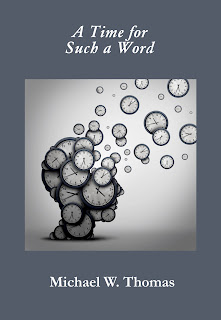Tina Cole was born in the Black Country and now lives in rural Herefordshire near Ludlow. She has three published pamphlets, I Almost Knew You (2018), Forged (Yaffle Press, 2021) and What it Was (Mark Time Books, 2023). As a poet and reviewer, she has led workshops with both adults and children and judged a number of U.K. and international competitions. Her published poems have appeared in many U.K. magazines and collections, including in The Guardian newspaper. She is a past winner of a number of national poetry competitions, 2010-2023, and completed an M.A. in Creative Writing / Poetry at Manchester Metropolitan University in 2023.
Michael W. Thomas has published ten collections of poetry, three novels and two collections of short fiction. His most recent poetry collection, prior to this, is A Time for Such a Word (Black Pear Press); his most recent short fiction collection is Sing Ho! Stout Cortez: Novellas and Stories (Black Pear Press); his most recent novel is The Erkeley Shadows (KDP / Swan Village Reporter). With Simon Fletcher, he edited The Poetry of Worcestershire (Offa's Press). His work has appeared in Acumen, The Antigonish Review (Canada), The Antioch Review (US), The Cannon's Mouth, Critical Survey, Crossroads (Poland), Dream Catcher, Etchings (Australia), Irish Studies Review, Irish University Review, Magazine Six (US), Pennine Platform, Poetry Salzburg Review, The Times Literary Supplement and Under the Radar, among others. He has reviewed for The London Magazine, Other Poetry and The Times Literary Supplement, and is on the editorial board of Crossroads: A Journal of English Studies (University of Bialystok, Poland). He was long-listed for the National Poetry Competition, 2020 and 2022, and long-listed and short-listed for the Indigo Dreams Spring Poetry Prize, 2023. Michael's website is here. He blogs here. @thomasmichaelw
A miscellany box of memories, intense and disconcerting; a gently encouraging piano teacher; teddy bears that knew better days; tinkling bottle-tags; classroom faces happy, wistful, preoccupied; a district nurse’s long-ago phone call; an assignation beneath a canal bridge; a father’s jokes worn down to the metal. These and so many other scenes find their places in the landscape of Nothing Louche or Bohemian. As the collection unfolds, threads are caught, drawn out, found to be markers on the map of what once was—and what, in these pages, lives again … enthralling, troubling, never less than vivid. Tina and Michael have known each other for several years but discovered that they’d grown up in the same area of the Black Country – and gone to the same secondary school. Those coincidences prompted Tina to suggest that they collaborate on a project. This is it.


.jpg)

%20(1).jpg)

.jpg)
